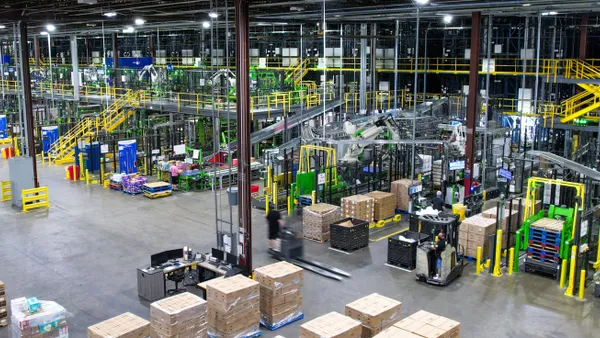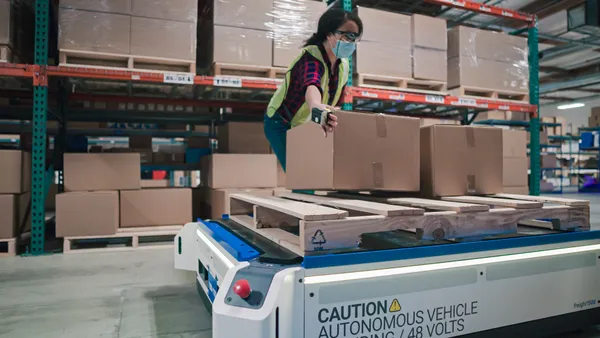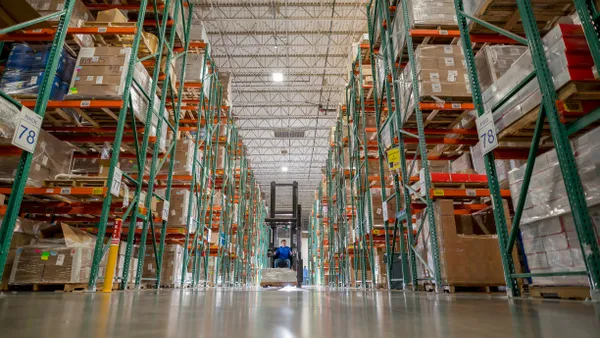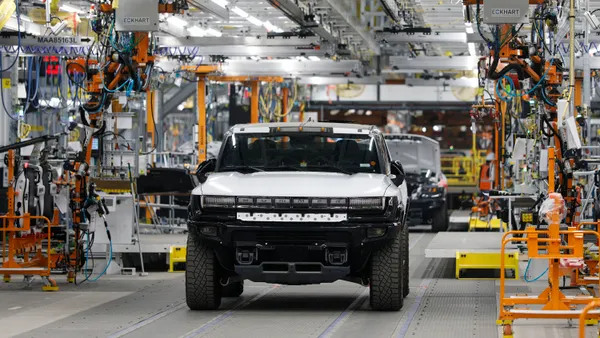Dive Brief:
- Supply chain professionals increasingly see a financial benefit in sustainability, and a majority plan to invest in waste reduction, ethical sourcing, water-efficiency improvements and carbon emission reduction over the next 18 months, according to a recent survey from Gartner.
- Waste reduction and water-efficiency improvements were the sustainability goals perceived as most likely to have a financial benefit.
- "For many organizations, the most significant end-to-end environmental impacts come from supply chains, and goal setting for environmental performance efficiency is becoming table stakes," John Blake, a senior director and analyst at Gartner Supply Chain, said in a webinar about the report last month.
Supply chains see financial benefit of sustainability
Dive Insight:
The Gartner survey highlights that companies are investing in multiple areas of sustainability. But another recent survey from the Massachusetts Institute of Technology Center for Transportation and Logistics, and the Council of Supply Chain Management Professionals found that about 35% of companies still lack formal corporate supply chain sustainability goals, while another 49% of respondents said their companies did have such goals.
The MIT and CSCMP survey also found that social issues — child labor or slavery, worker welfare, etc. — received "far more" focus in companies' sustainability goals than environmental issues, such as carbon emissions or waste, the report found.
But the Gartner report shows companies are more likely to see savings potential by addressing environmental issues. The ability to pivot to sustainability while cutting costs was also highlighted in the MIT and CSCMP report.
"The irony is that some sustainable practices can, in fact, help companies through tough times. The biggest opportunity is to identify sustainable projects that will save money and add to the bottom line," Kevin Smith, a former SVP of supply chain and sustainability at CVS Caremark Corporation, was quoted as saying in the MIT and CSCMP report.
It is also something that Alexis Bateman, the author the MIT report and the director of sustainable supply chains at MIT's Center for Transportation and Logistics, has told Supply Chain Dive in the past.
"So many of the initiatives we're talking about in terms of your direct operations are value saving," Bateman said in 2019. "If you have to buy less energy, you're saving money. If you're optimizing your routes, and using less gas and using less man-hours, you're saving money."
Walmart, the largest retailer in the country, has committed to having zero waste in its own operations by 2025. In 2019, it was able to divert 80% of its unsold products, packaging and other operational materials from landfills and incineration, according to its most recent sustainability report.
"For many operations, waste disposal costs your business twice — first when you purchase materials, and then again when you dispose of them," according to the commercial waste service provider National Waste Associates. "Designing out waste from a process can therefore deliver significant savings. This is known as source reduction."
National Waste Associates also notes that manufacturers can save on materials cost by designing products to be reusable or recyclable.
This story was first published in our weekly newsletter, Supply Chain Dive: Operations. Sign up here.













